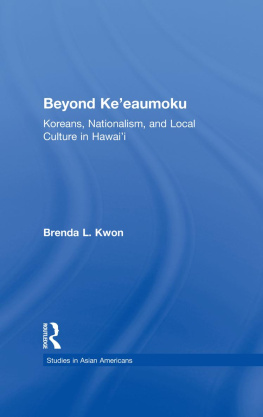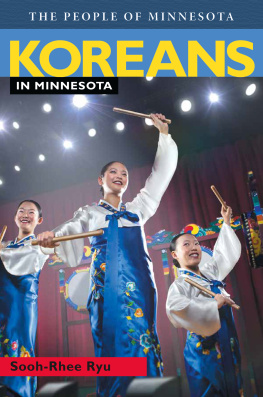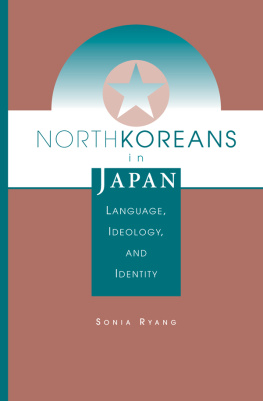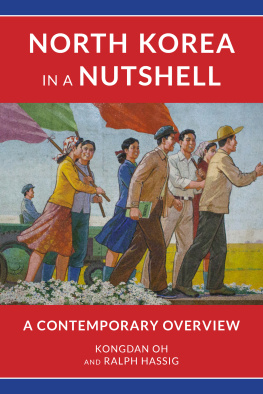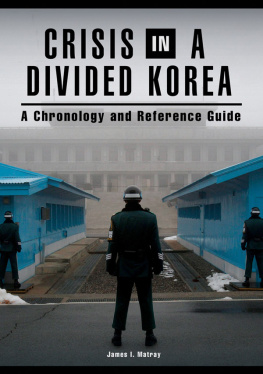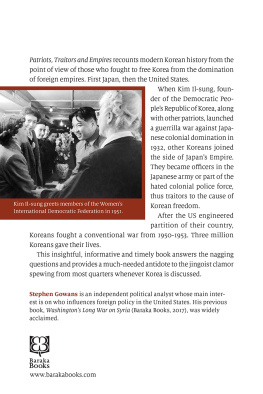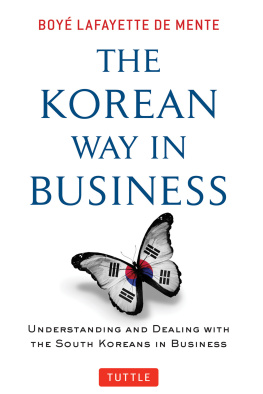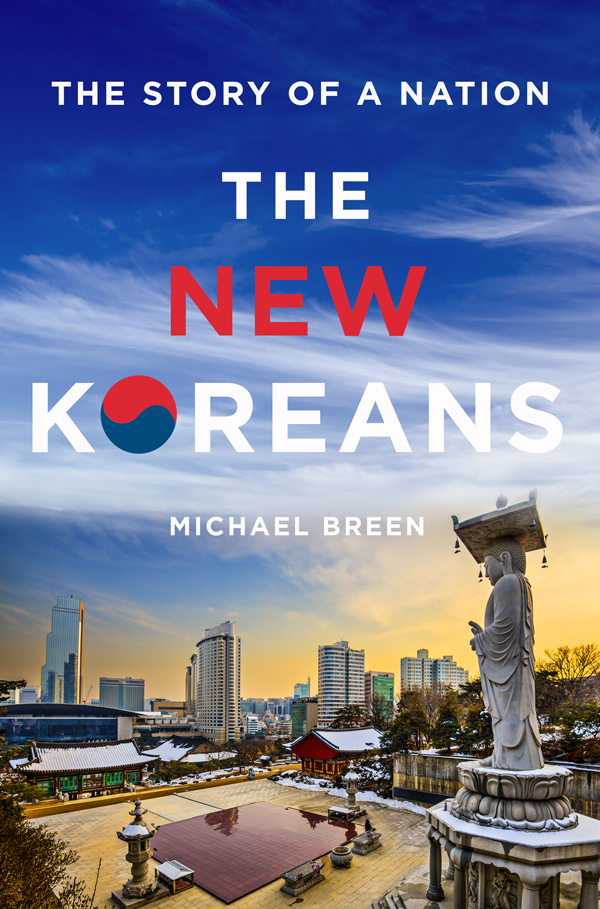Contents
Guide

The author and publisher have provided this e-book to you for your personal use only. You may not make this e-book publicly available in any way. Copyright infringement is against the law. If you believe the copy of this e-book you are reading infringes on the authors copyright, please notify the publisher at: us.macmillanusa.com/piracy.
To qualify as a global citizen and not just pretend, a wise man once told me, you must live in other countries and love the people there more than your own. At least three if you can. The more different, the bigger the challenge. I can claim to have made it with the Koreans, which is a good start. I know, because I root for the Koreans in the FIFA World Cup. And so, this book is for them. I dedicate it to my wife, Arem, who, for me, is their representative.

1945 | World War Two ends; American Military Government rules South Korea; Soviets control the North. |
1948 | Jeju Uprising; Republic of Korea and Democratic Peoples Republic of Korea established as separate states. |
1950 | North Korea invades. |
1953 | Cease-fire. |
1960 | Student protests topple Syngman Rhee; cabinet system established under Prime Minister Chang Myun. |
1961 | Military coup by Park Chung-hee; country returns to an American-type presidential system. |
1967 | Annual exports reach 300 million dollars, per capita GDP 150 dollars. |
1970 | Annual exports reach 1 billion dollars, per capita GDP 250 dollars. |
1971 | Park is reelected. |
1972 | First North-South talks; Park establishes Yushin constitution. |
1974 | First Lady Yuk Young-soo is assassinated. |
1977 | Annual exports 10 billion dollars, per capita GDP 1,000 dollars. |
1979 | Park Chung-hee is assassinated; Chun Doo-hwan takes control of army. |
1980 | Chun introduces martial law; uprising in Gwangju. |
1981 | Chun becomes president. |
1987 | Protests lead to democratic election. |
1988 | Roh Tae-woo is inaugurated; Summer Olympics staged in Seoul. |
1993 | Kim Young-sam is inaugurated. |
1994 | North Korean leader Kim Il-sung dies; his son Kim Jong-il takes over. |
1996 | South Korea joins Organization for Economic Co-operation and Development. |
1997 | Asian financial crisis. |
1998 | Kim Dae-jung is inaugurated. |
1999 | Shiri , first of a new generation of blockbuster movies, is released. |
2000 | Boy band H.O.T. performs in Beijing; first North-South summit; Kim Dae-jung wins Nobel Peace Prize. |
2002 | FIFA World Cup held in Korea and Japan; TV drama Winter Sonata gets cult following in Japan; singer BoA becomes a star in Japan. |
2003 | Roh Moo-hyun is inaugurated. |
2004 | Park Chan-wooks Oldboy wins the Grand Prix at Cannes. |
2007 | Foreign minister Ban Ki-moon becomes UN Secretary-General; Roh Moo-hyun and Kim Jong-il hold summit in Pyongyang. |
2008 | Lee Myung-bak is inaugurated. |
2011 | North Korean leader Kim Jong-il dies; his son Kim Jong-un takes over. |
2012 | PSYs Gangnam Style; Kim Ki-duk wins the Golden Lion award at Venice for Piet. |
2013 | Park Geun-hye is inaugurated. |
2016 | The Vegetarian by Han Kang wins Man Booker International Prize; influence-peddling scandal rocks Park administration. |
There are a number of schemes for rendering Korean words in the Latin alphabet. I mainly use the Revised Romanization introduced in 2000 by the South Korean government. With North Korean place names, courtesy demands that we use North Korean spelling. This comes from a slightly revised version of the McCune-Reischauer system, which was developed in the 1930s by two American academics, George McCune and Edwin Reischauer, and is still in use among scholars outside of Korea. The other exception is with personal names. In those cases, I use whatever the owner prefers. If Im deciding for them, I use the South Korean system, with a nod to familiarity in that I dont call any Kims Gim or Parks Bark.
This book began as an update to an earlier one, The Koreans , but so much has changed that it turned into something new.
In that first book, which was written in the late 1990s, I suggested that the miracle on the River Han, as South Korean economic development was commonly described, had given rise to a second miracle of democratic development, and would lead to a third: reunification with North Korea, but on South Korean terms. These three remarkable and unanticipated changes would, I thought, complete the reinvention and healing of a once-backward country whose spirit had been broken by Japanese colonial occupation and by its division into North and South by outside powers. I anticipated the sequel by this time to be The Unified Koreans.
Besides being wrong on timing, I have refined my view of this emergence and of what it means. First, while it is true that foreign occupation and national division left both North and South Koreans with a shattered identity after World War Two, I fear that I missed something that now strikes me as obvious about the modern development of the South Koreans: that the source energy driving it was defiance, not of the Japanese who colonized them, but of an entire history that had delivered them to a broken present. They refused to accept the place the world thought they occupied. Their defiance was set alight by anger against their brothers and sisters in the North and drove them to find the right way to compete.
This posture seems petty now. At the start the North was stronger economically and in terms of morale and confidence, but it has become an isolated and sad state whose leadership is mocked around the world.
It is ironic that the North Koreans are now seen as defiantwaving around nuclear weapons, celebrating their racial purity, congratulating themselves for their independence from foreign influence, and flouting international rules and diplomatic courtesies, while all the time looking for handouts from their enemies.
But the North Koreans are blowhards. Their defiance never took them anywhere. They are posers, a flag in one hand and a begging bowl in the other. It is the South Koreans who harnessed defiance and made something of it. It is their habit now, as they set about achieving something, to plug into this source energy as it carries them along, achieving if not everything, at least more than outsiders like me imagined they would.


